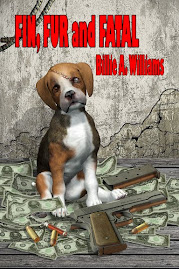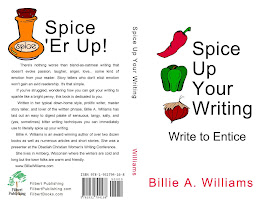
Want to live longer?
by Billie A Williams
I’ve heard this before but for some reason it stuck with me today when I read it. When you volunteer you’ll get more than you give. One of those things you’ll get according to a recent study – is a longer life.
“Research on volunteerism shows that people who volunteer live longer, have stronger immune systems, have fewer heart attacks, recover from heart attacks faster, have higher self-esteem, and have a deeper sense of meaning and purpose than those who don’t volunteer.” Jack Canfield wrote in his book The Success Principles.
What does it cost you to volunteer? Commitment, a tiny bit of your time, perhaps some change, perhaps a little money. What can you gain besides a longer, better life? Everyone needs to feel needed (wanted) they want to belong according to Abraham Maslow and his hierarchy pyramid. What better way to be in that position than to help others.
There’s another thing, you can learn from volunteering. There are companies that take on summer volunteers – think of that as FREE training/learning. You can enhance your skills for the type of job you are seeking by volunteering to ‘help’ at a company that may need summer extras – and you will learn. Perhaps when they decide to hire a new employee you’ll be on their mind.
As a writer think about volunteering at your public library or your school. You could read to the students. Help them find things to write about for a creative writing class. Visit classrooms to speak. Everyone is in awe of a REAL writer. They want to touch your pen, shake your hand, pick your brain—and think of all the stuff you’ll learn. Especially, if you write for children or teenagers—it’s all there in a class room full of energy.
by Billie A Williams
I’ve heard this before but for some reason it stuck with me today when I read it. When you volunteer you’ll get more than you give. One of those things you’ll get according to a recent study – is a longer life.
“Research on volunteerism shows that people who volunteer live longer, have stronger immune systems, have fewer heart attacks, recover from heart attacks faster, have higher self-esteem, and have a deeper sense of meaning and purpose than those who don’t volunteer.” Jack Canfield wrote in his book The Success Principles.
What does it cost you to volunteer? Commitment, a tiny bit of your time, perhaps some change, perhaps a little money. What can you gain besides a longer, better life? Everyone needs to feel needed (wanted) they want to belong according to Abraham Maslow and his hierarchy pyramid. What better way to be in that position than to help others.
There’s another thing, you can learn from volunteering. There are companies that take on summer volunteers – think of that as FREE training/learning. You can enhance your skills for the type of job you are seeking by volunteering to ‘help’ at a company that may need summer extras – and you will learn. Perhaps when they decide to hire a new employee you’ll be on their mind.
As a writer think about volunteering at your public library or your school. You could read to the students. Help them find things to write about for a creative writing class. Visit classrooms to speak. Everyone is in awe of a REAL writer. They want to touch your pen, shake your hand, pick your brain—and think of all the stuff you’ll learn. Especially, if you write for children or teenagers—it’s all there in a class room full of energy.
Carry that one step farther, read at a local nursing home or assisted living facility. The tome of information availble from the senior citizens that live in these places is unequalled. Tap into this rich resource while you give of yourself, you may be amazed at what you gain in return.
You want to write ad copy — or articles, or biographies, or feature articles, profiles, be a journalist? Go volunteer your services at your local newspaper. Even if it’s stuffing Sunday editions with the junk mail that comes in them — you’ll learn. Being in a newspaper environment is a key to succeeding in these fields.
Where you volunteer you’ll learn to talk the talk and walk the walk – all of it for no cost to you. Rewards as big as all outdoors are yours for the volunteering. How about being a camp counselor, or a park visitor greeter. Park Camp Ground supervisor…all fodder for stories.
Next time you need to research, consider volunteering, the benefits are huge.
You want to write ad copy — or articles, or biographies, or feature articles, profiles, be a journalist? Go volunteer your services at your local newspaper. Even if it’s stuffing Sunday editions with the junk mail that comes in them — you’ll learn. Being in a newspaper environment is a key to succeeding in these fields.
Where you volunteer you’ll learn to talk the talk and walk the walk – all of it for no cost to you. Rewards as big as all outdoors are yours for the volunteering. How about being a camp counselor, or a park visitor greeter. Park Camp Ground supervisor…all fodder for stories.
Next time you need to research, consider volunteering, the benefits are huge.


















